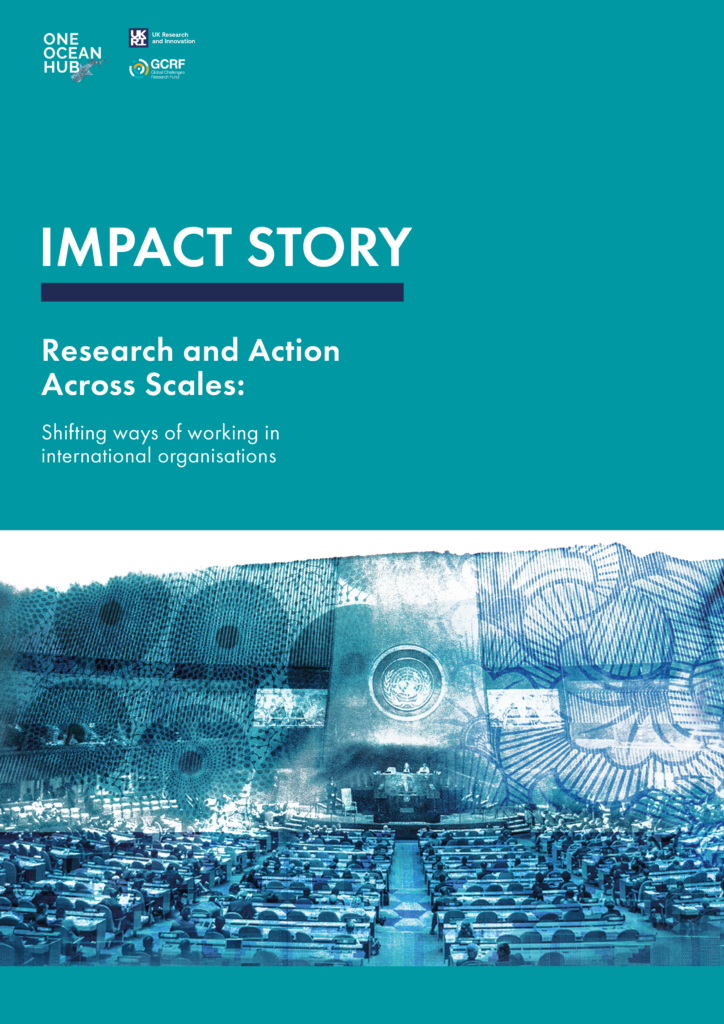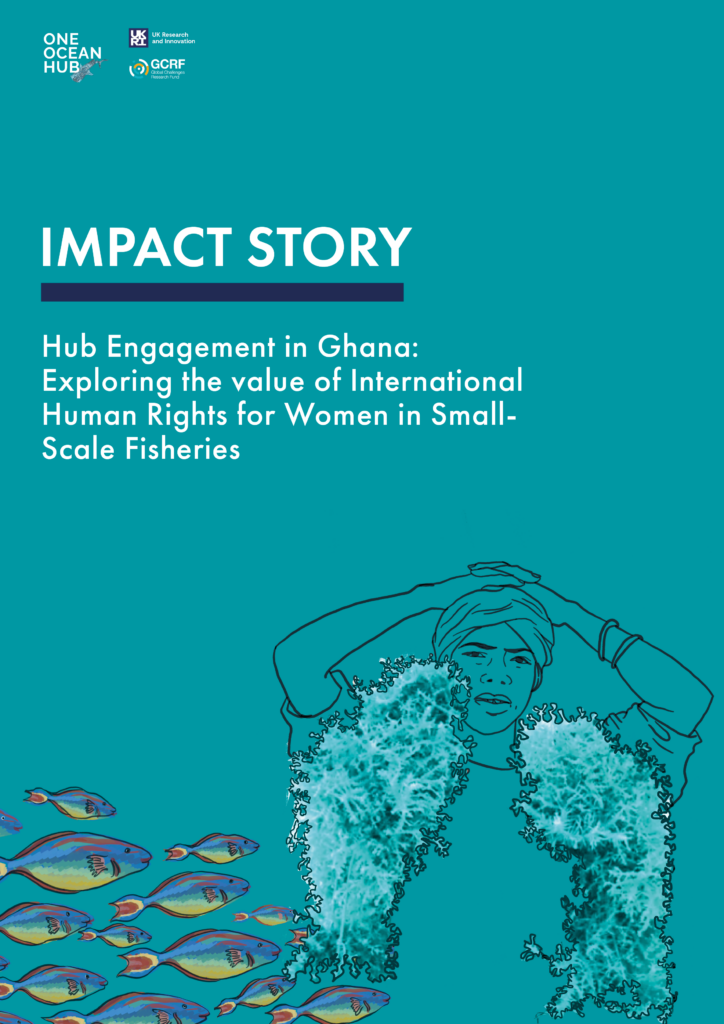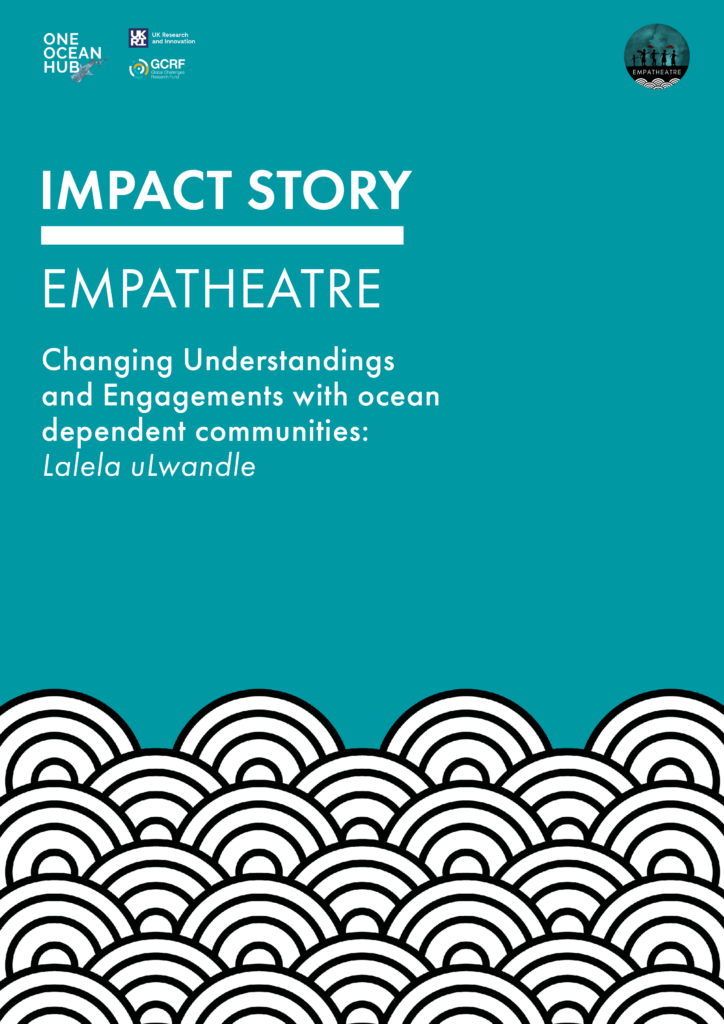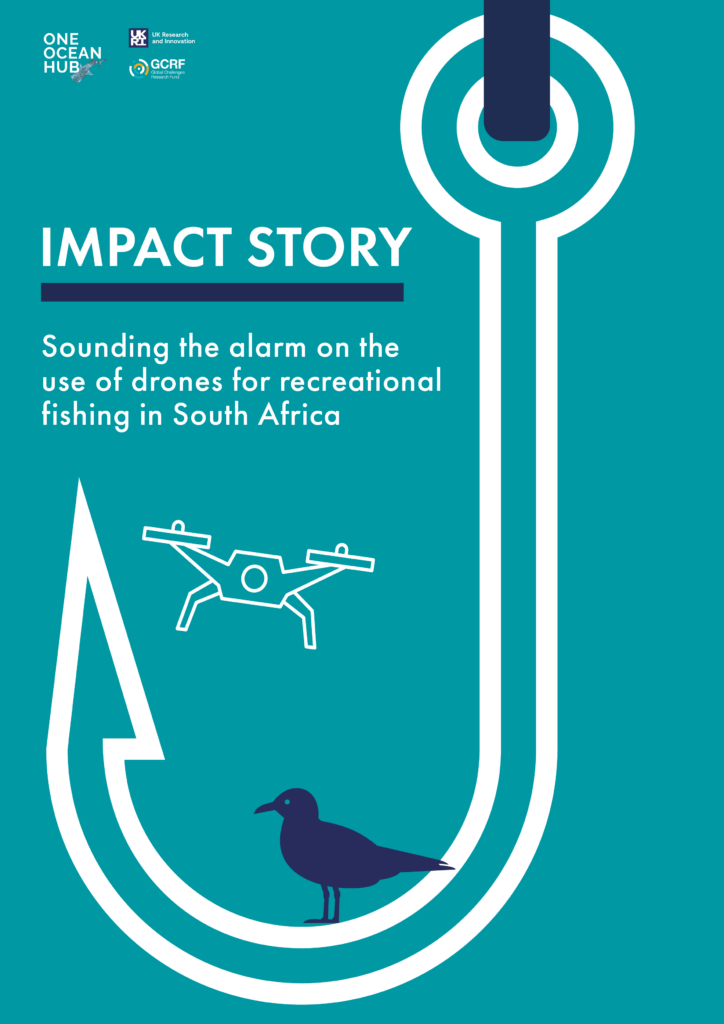Engaged Scholarship: Research that Supports Livelihoods and Cultural Rights of Women in Small-Scale Fishing Communities in the Eastern Cape, South Africa

(READ THE IMPACT STORY HERE)
impact story overview
For too long, academic research on communities such as small-scale fishers has been ‘extractive’: researchers ask for the time and expertise of ‘research subjects’, and in return leave the community with no tangible benefits other than, possibly, the knowledge that their struggles are now known to more people.

Buhle Francis, a Hub early-career researcher at Rhodes University, South Africa, has a different vision for what academic research can do, both for academia and for those who are studied. With women in small-scale fishing (SSF) communities in the Eastern Cape, she is undertaking pioneering collaborative research at the nexus of environmental justice, gender equality, ocean livelihoods, and inclusivity in ocean-related decision-making processes.

Buhle’s first Hub project was with two communities of women establishing sewing projects as livelihood extensions. The idea for the project emerged organically through WhatsApp and telephone interviews with women from SSF communities during South Africa’s level-5 COVID lockdown. Buhle facilitated conversations about possible projects to complement their livelihoods, and sewing emerged as a priority. The Hub’s Flexible Fund supported the establishment of two groups, providing each group with equipment and training. The project demonstrates that skills can be quickly developed with access to equipment and training. By using innovative and flexible funding to create opportunities for these communities, trust was built which, in turn, led to strongly grounded research.
From conversations with the women in these sewing groups, Buhle identified the subject for her most recent research project, “Grandmothers of the sea: Protecting women’s rights through art and fair benefit-sharing from seaweed harvesting in the face of climate change.” This co-designed study is focused on protecting the human rights of SSF women in the Eastern Cape by building capacity, legal empowerment, and meaningful climate adaptation strategies. It expands on Buhle’s post-doctoral research on the nexus between climate change, livelihoods, and governance by integrating legal research with art-based empowerment.

making waves
Rarely have other research projects been so flexible and relevant to the communities they do research with. Often, research may be knowledge-extractive, leaving communities with no tangible benefits other than the knowledge that their struggles and issues have been made known globally.

DR BUHLE FRANCIS, RHODES UNIVERSITY, SOUTH AFRICA
Buhle reached out to women involved in seaweed harvesting and, with them, developed a new research project, “Grandmothers of the sea: Protecting women’s rights through art and fair benefit-sharing from seaweed harvesting in the face of climate change.” Through their seaweed harvesting practices, these women have long histories with local ecological knowledge of the ocean.

Artwork: Margherita Brunori
These projects show that academic research can respond to a community’s analysis of their own needs and, in the process, produce robust research that benefits from the community’s expertise. The Hub is proud to support researchers such as Buhle who are exploring how relationships between academia and communities can bring tangible benefits to both.
READ the IMPACT STORy by clicking the image
READ our OTHER IMPACT STORIES
CLICK ON THE IMAGES BELOW TO READ













